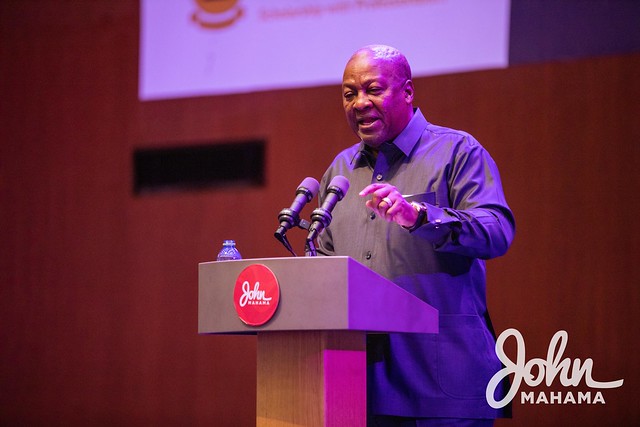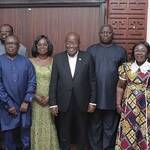Former President John Dramani Mahama says renegotiation of contracts of Independent Power Producer (IPP) in the energy sector can guarantee government access to revenue.
He made the call in an address on the economic hardship in the country on the theme: “The Ghana we want”.
During the reign of ex-President Mahama, power contracts were signed on a take-or-pay basis, which means that the cost of power has to be paid whether the power is consumed or not.
GH₵12bn and counting paid for power not consumed
This is what has given rise to the payments of GH₵12 billion and counting as capacity charges.
All take or pay IPP contracts signed under Mahama
The IPP contracts the former president is referring to were all signed under his administration.
Therefore, the call by ex-president Mahama is viewed as an admission that he presided over the signing of costly power contracts that favour IPPs.
Bad Power Purchase Agreements
The persistent unreliable power supply under ex-president Mahama was compounded by costly power purchase agreements (PPAs) that saddled the nation with huge debts in the energy sector.
Energy sector debt, a threat to the economy
Sadly, but admittedly, this avoidable energy sector debt still poses a threat to the economy for adding up to the country’s debt stock.
The over GH₵12 billion as the cost of excess energy capacity charges paid between 2017 and 2020 and still rising was paid for electricity that the country did not use but had to be paid anyway due to the nature of power contracts signed during the era of ex-president Mahama.
Stable electricity supply
This explains why Ghanaians have enjoyed stable electricity supply since 2017 as opposed to the excruciating rolling power cuts, christened ‘dumsor’, Ghanaians endured from 2011 to 2016.
Today, many Ghanaians do not even want to hear the word dumsor, and the slightest fluctuation in electricity supply reminds them of the dreaded four years of the phenomenon.
Renegotiations with IPPs
Though government’s attempts at renegotiating with IPPs seemed a herculean task, with the cordial relations established between the players, certainly there is light at the end of the tunnel.
Dumsor was a financial problem
Ghanaians had to go through ‘dumsor’ partly due to government’s inability to pay IPPs to keep the lights on.
One does not have to look further for confirmation. Under persistent pressure in 2015, the then Deputy Power Minister, John Jinapor, admitted that money was partly to blame for the excruciating power challenges Ghanaians endured.
In 2019, former Power Minister during the dumsor era, Dr Kwabena Donkor also admitted in an interview that money was partly to blame for the excruciating power challenges Ghanaians endured.
SMEs lost $2.2m every day due to dumsor
The economic impacts were far-reaching as a study conducted by the Institute of Statistical, Social and Economic Research (ISSER) revealed that Small and Medium Enterprises (SMEs) in Ghana were losing $2.2 million daily due to the power crisis.
Businesses lost $686.4m every year due to dumsor
According to the findings, businesses lost about $686.4 million annually due to the incessant supply of electricity which plagued Ghana over the four years.
- Friday April 26 2024 Newspaper Headlines - 26 April 2024
- Thursday April 25 2024 Newspaper Headlines - 25 April 2024
- Wednesday April 24 2024 Newspaper Headlines - 24 April 2024




